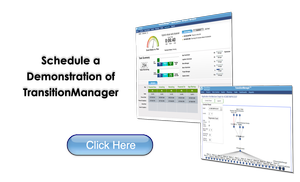In today’s business environment, there are incredible demands to accelerate and respond to increasing expectations for intelligent, immediate, and immersive experiences coming from end users. Organizations must step up and be a part of the digital landscape to survive. The increasing complexity of connections between people, organizations and technology-based systems are changing data, application architecture, and security models. As this powerful technology wave accelerates, it puts increasing demands right at the door step of IT.
To prepare for this digital transformation, many IT managers take a cautious approach. They hesitate out of fear of the many unknowns: costs, security, application availability, capacity to get it all done. To address these concerns, they may opt to add bodies, either on staff or by bringing in an army of outside consultants. They may conduct deeper and deeper analysis and pore over spreadsheets to be sure they carefully consider their next moves.
But that approach isn’t going to cut it today. The longer it takes to adapt and build a more agile environment:
1. You risk the likelihood that technologies will change and already be out of date by the time you get to the finish line.
2. The longer it takes to get there, there is greater opportunity for the business to be outpaced by competition.
3. As you lay out your plans, rest assured, the business won’t stand still. M & A activity, consolidations, new developments will continue, and can quickly make those plans obsolete.
4. Reliance on spreadsheets may mean you miss key information about your IT landscape that’s buried in your organization’s tribal knowledge. And spreadsheets aren’t dynamic enough to easily capture the interdependencies between applications or to keep current.
5. You’ll spend significant dollars on big teams of outside consultants, tapping internal resources, extending your timeline even further and, frankly, generating a questionable return.
Cloud migration can be one of the most important moves an organization makes, bringing new levels of agility, scalability, and cost efficiency. But the journey isn’t always a smooth one. As with any major initiative, it’s crucial to have a well-designed process in place before you begin. Otherwise, the migration is all too likely to take too long, cost too much, run afoul of compliance requirements, or simply fail to deliver the benefits you were counting on. The danger lies in letting the planning process slow down your implementation.
TDS has been helping organizations for many years to maximize the power of hybrid/cloud technology. Our methodology is built on the belief that the combination of people, process and technology are the key to building an agile IT environment that enables the organization to adapt rapidly to perpetual change. It’s always gratifying to me to witness first-hand the excitement when our clients realize that they can confidently take the wheel, quickly and easily unlock the value of existing information, integrate new systems and tools with little disruption, and automate workflows to assure migration and recovery success.
As disruption accelerates, the requirement to adapt is more urgent. At the pace of today’s business, can you afford the risk of taking it slow?

